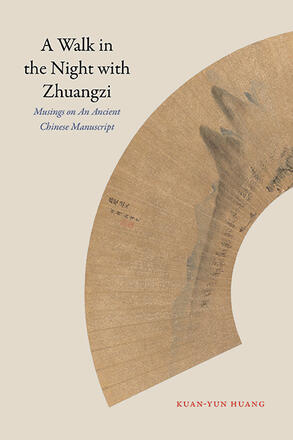
A Walk in the Night with Zhuangzi
Musings on an Ancient Chinese Manuscript
Alternative formats available from:
A complete translation and analysis of "All Things Flow into Form" (Fan wu liu xing), a recently discovered manuscript from the Warring States period (481–221 BCE).
Description
At the heart of "All Things Flow into Form" (Fan wu liu xing), an ancient Chinese manuscript recently salvaged from the black market, is a concern with the process of self-cultivation, particularly the advancement through the incremental stages and the outcome that awaits one in the end: enlightenment, transparency, and self-possession. Critical to this discussion is a conception of a mind within a mind, the unity of which is obtained through the isolation of an innermost core free from extraneous distractions. Such a state is presented as an ideal for kingship, and the text, despite its possibly very ancient roots, is focused on the ruler's ethical training rather than his political maneuvers, his obligation to Heaven and the spirits rather than his dominance over his subjects. Probing deep into this text, we may observe heretofore unappreciated aspects of many of the transmitted literary sources, and in turn, come to more definite conclusions about the manuscript itself. To the extent that this analysis is successful, it illustrates an approach that can be tested against future efforts to read ancient Chinese texts in the light of newly unearthed documents.
Kuan-yun Huanglives and teaches in Taiwan, where he is Research Fellow and Director of the Research Center in Taiwan, Oriental Institute, Czech Academy of Sciences.
Reviews
"This is an extended and allusive translation and analysis of an important work, which Huang reads 'against' the Zhuangzi in an original way. The translations are deft, and the footnotes are judicious. Stylistically it is a rare specimen, containing no small amount of whimsy (something I personally appreciated). Walter Benjamin tells us that the translator should preserve the artistic features of the original, and not translate to a particular audience. While it may perturb those Sinologists who tend to treat ancient texts as if they were scientific specimens, I find the formal features of this text appropriate to the source material." — Mark Csikszentmihalyi, University of California, Berkeley